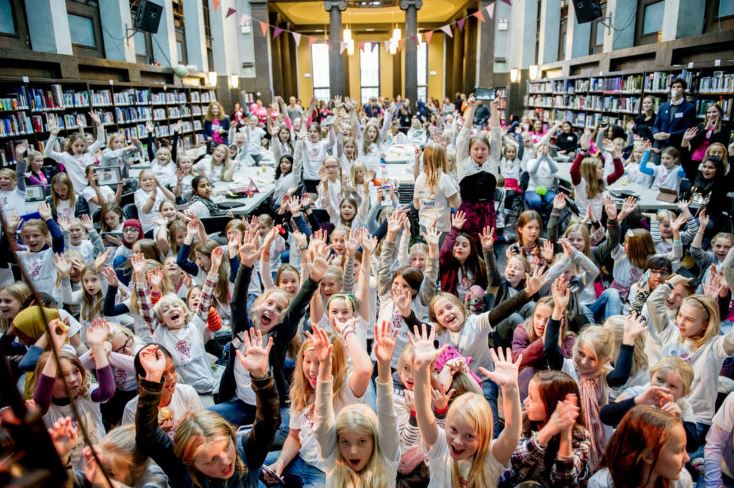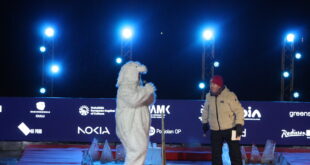It was perhaps significant that the recent Oslo Innovation Week (OIW) five-day series of events was preceded by a forty-eight hour Techfugees hackathon where more than one hundred data scientists, engineers, user experience designers and entrepreneurs united in teams to build prototypes alongside refugees, to find solutions to enable better integration into Norwegian society.
the Techfugees Hackathon
Techfugees is a social enterprise and has been a fast growing global community since its inception one year ago. Currently there is a network of 15,000+ innovators and engineers building technology to meet the needs of refugees. In this short space of time, there are already more than twenty-seven global chapters and hundreds of ongoing projects.
The community, led by Mike Butcher (of Techcrunch fame) explained before the final pitching that the non profit organisation is focused on providing technology and expert help for refugees. Techfugee’s volunteers work with Non Governmental Organisations (NGOs) and are supported by donations and key Partnerships. The focus is on ‘hacking’ towards simple design, agile development and creative solutions. Techfugees ’T5’ program highlights five main focus areas with dedicated programs for Infrastructure, Education, Identity, Health and Inclusion.
Strategic partners such as Schibsted Media Group and the generosity of local event partners – in this Oslo case – Finn.no, Katapult Norway & UT: Studentbyrå, are critical enablers for the growth of the movement.
From the twelve teams that pitched on the Sunday night with their solutions ranging from online platforms for matching skilled refugees to jobs, to chatbots designed to help refugees find information about social activities and local services, the final three teams were selected to pitch on monday morning, shortly before the official opening of OIW.
Learning from different cultures
Monday was the final chance for three finalist teams to impress the judges with their solutions.
First to go were SkiwoGo skiwo.com – ‘real interpreters on demand, any time’. The solution to connect volunteer interpreters in real-time via a video call, to help overcome the initial language barriers faced by refugees.
Heart-to-Heart was the second team to pitch. They created an App for pregnant women, a kind of personal assistant which with they can chat and that can help schedule nursing appointments and give extra information and reassurance. It was an artificial intelligent (AI) approach to solve the problem of making more personalized information available at the right time versus having to scan whole websites often in the local language.
The final (and the Winning) team was KOM-Inn which is a online platform focused on learning language. After the simple signup registration individuals and families can get together for dinners to socialize and learn the language in a relaxed atmosphere.
More detailed information about the event and finalists can be found here.
Techfugees were already planning visit the Calais ‘Jungle’ the following week to see what support could be given to the refugees. Their plight continues.
Energy and drive in innovation
Complacency is a risk for such a wealthy and advanced economy as Norway, but leaders are taking the current and future challenges seriously. With so much global economic instability, uncertainty, political and social unrest, Norway has taken a positive approach to welcoming refugees and immigrants. It is these new arrivals who often have the greater need and desire to achieve in their new surroundings. They bring with them passion and new skills and they have the opportunity to revolutionize innovation, perhaps by bringing a more frugal mindset to solutions, based on their previous experiences in making solutions with fewer resources.
Girl Tech Fest
Held at the Deichmanske Library in Oslo, during the week, three hundred young girls (3rd-5th grade) were introduced to software coding. It was an important event with a strong message of inclusion with the Norwegian Prime Minister Erna Solberg in attendance during the morning session. The girls had fun and the chance to use 3D printers and other technology for inspiration and play.
Tech for Freedom
The focus for this session, one of many hosted during the week by Mesh startup hub, was on how to bring in businesses and startups to work towards the promotion of freedom and human rights around the world. The panel discussion included speakers from Oslo Freedom Forum brought together many viewpoints to brainstorm and discuss new ways forward.
Leverage the student talents
The Innovation Effect (TIE) initiative which connects students with companies and innovative projects matched the Oslo Innovation Week main themes of Power-Couples and The New Generation. University students in interdisciplinary teams have found innovative solutions to company challenges. In the last year, 160 students have completed over 60 projects for collaborators such as Apple, IBM, Samsung, Telenor Digital and Orkla, bringing their fresh new perspectives to the challenges.
So many insights and lessons learned during the hectic week – inclusion of the very young, students, startups, small and large businesses, academic institutes and many other organisations.
To keep up to date with activities in Oslo, check out the Oslo Business Region website.
Photo: Oslo Innovation Week: Girl Tech Fest. Pic: GORM K GAARE / EUP-BERLIN.COM
 Nordic Startup News Early Stage Startup News From The Nordics
Nordic Startup News Early Stage Startup News From The Nordics


